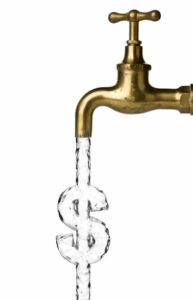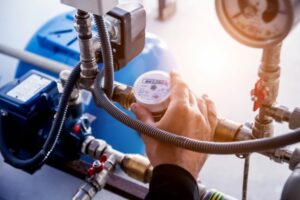What Prospective Homebuyers Need to Know About Water Wells
At the start of 2020, homebuyers were excited to finally purchase the home of their dreams. Then, as the coronavirus (COVID-19) pandemic swept the nation, many homebuyers immediately screeched their real estate endeavors to a halt.
By the end of June, many buyers started to resume their plans — driven by pent-up demand from earlier this spring. And as the world was rapidly forced to adapt to the coronavirus, homebuyer needs also adapted.
As a third of the world begins working from home full-time, kids adapt to virtual classes, and some companies state they may never return to their old workspace — homes have seemed more crowded than ever before.
When asked what the top motivation is for buyers to move currently, top real estate agents dubbed the need for more space (44%), the desire to leave the city (37%), and the need for more private outdoor space (31%) as some of the most important factors motivating people to move.
While a large acreage of land and more space sounds ideal in an age when people are spending all day at home, homebuyers should also do their research on water wells. If you’re a homebuyer thinking of making a move to a rural area and you’re seeking a large acreage of land, you’ll almost surely have to contend with water wells.

The pros of owning a water well
Tired of constantly paying that pesky water bill each month? Fortunately, owning a water well means no more municipal usage fees, as well as state and federal tax credit options.
Along with the financial gains, water from water wells is hailed as more refreshing and better tasting than normal city water. Because it’s a natural source, it often tastes better than chemically-treated municipal water.
Water well is also naturally filtered, which means it’s much better on the environment than municipal water. Municipal water uses harsh chemicals to treat the water, while well water comes right from the earth and doesn’t subject the planet to unnatural chemicals.
The cons to owning a water well
The short answer? Maintenance and unreliability. Well water can become contaminated with chemicals, radiation, sewage, and dead animals. If your well water runs dry — it isn’t the city’s problem. Depending on the repairs, maintenance can be quite expensive. Not to mention, septic tanks — which go hand in hand with water wells — require their own set of maintenance. While 95% of the time, septic tanks cause no issues, problems do occur when the tank is overdue for drainage or when the drainfield becomes overloaded, causing flooding.
The bottom line: along with the autonomy that comes with water wells, also comes the responsibility to maintain the quality of the water. If the water runs dry, becomes contaminated, or needs additional drilling, you’re on your own to fix the issue.
Fortunately, becoming a WelGard member provides you with peace of mind. You’ll receive immediate repairs and you’ll be protected if your well ever fails, so you can stop worrying about the cons of owning a water well and simply focus on all the pros. So even if you’re not, you can feel like you live on city water with WelGard®.

